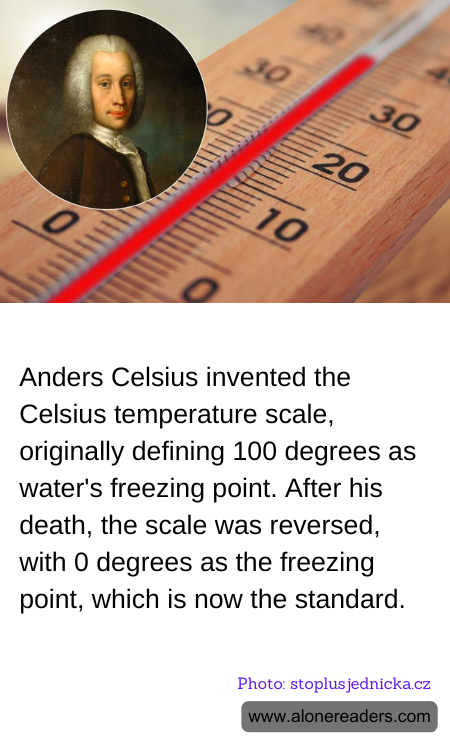
Anders Celsius, a Swedish astronomer and physicist, is best known for developing the Celsius temperature scale, a revolutionary concept in the field of thermometry. Introduced in 1742, this scale represented a significant leap in scientific thought by providing a systematic way to measure temperature. Initially, Celsius's scale was set in an inverted manner compared to today's use; he defined the boiling point of water at 0 degrees and the freezing point at 100 degrees. This scale was based on the fixed points of the phase transition of water, making it reproducible and practical for scientific research.
However, this original version of the scale did not last long. After Celsius's death in 1744, the scale was reversed by Carl Linnaeus, another prominent Swedish scientist, in order to make it more intuitive. The revised scale set the freezing point of water at 0 degrees and the boiling point at 100 degrees under standard atmospheric pressure. This change allowed for a more direct understanding and reading of temperature increments and decrements, with higher values indicating hotter temperatures, which aligned more with everyday experiences of hot and cold.
This reversal of the Celsius scale made it increasingly popular among the scientific community and eventually, it was adopted widely across the world, largely displacing other scales like Fahrenheit in many countries. The Celsius scale not only simplified scientific communication but also facilitated international collaboration in many technical and scientific endeavors. It allowed for straightforward and unified measurements in fields such as meteorology, oceanography, and physics, contributing significantly to the standardization of many scientific techniques. Nowadays, the Celsius scale is one of the two most commonly used temperature scales along with Fahrenheit, used in almost all scientific applications and by the general population in most countries. This adoption underscores the impact of Celsius's invention on daily life and scientific exploration, demonstrating how a simple adjustment in measurement can provide clarity and utility across different domains of life.